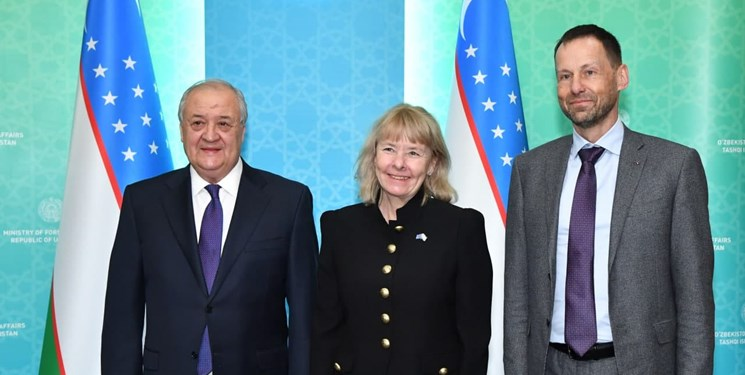A joint statement was issued by the EU special representative for Afghanistan, Central Asia Special Envoys for Afghanistan and the EU Special Representative for Central Asia, following a meeting in Tashkent, Uzbekistan. The statement called for the formation of an inclusive government in Afghanistan.
On Monday the EU special envoy Tomas Niklasson tweeted he was heading to Tashkent with EU Special Representative for Central Asia Terhi Hakala to discuss Afghanistan’s regional significance and how the EU can “engage as a constructive partner.”
The representatives “stressed a continuous need to ensure good governance and service delivery, promote and respect rule of law, universal human rights and fundamental freedoms of all Afghans, in particular of women and girls as well as children and persons belonging to ethnic groups and minorities, and the establishment of an inclusive and representative government through a credible and legitimate political process in which meaningful participation by all ethnic and political stakeholders, including women and minorities is respected.”
The participants also reaffirmed EU and Central Asia cooperation in support of the Afghan people as well as security and “resilience in a wider region.”
According to the statement, the participants also reiterated the “ambitions” for a developed, stable, secure, independent and prosperous Afghanistan in which “all Afghan women and men can enjoy the full rights and freedoms afforded to them by the international commitments to which Afghanistan is a signatory, and that threats to others do not emanate from Afghanistan in line with the United Nations Security Council Resolution 2593, including freedom of movement, and provision of safe passage.”
They also expressed concerns over the Afghan humanitarian crisis and called for a concerted response by the international community.
The envoys and representatives underscored the importance of averting Afghan soil from being“used as a base for hosting, financing or exporting terrorism and violent extremism to other countries.”
The Islamic Emirate has yet to comment, but it has previously said that there is no threat to any country from Afghan soil. The Islamic Emirate has also denied the reports of several organizations and remarks of Western officials about the presence of foreign terrorist groups in Afghanistan.
The participants “underlined the important role of strengthened regional cooperation to support an inclusive political process in Afghanistan that is vital for future social and economic development of the country,” the statement reads.











